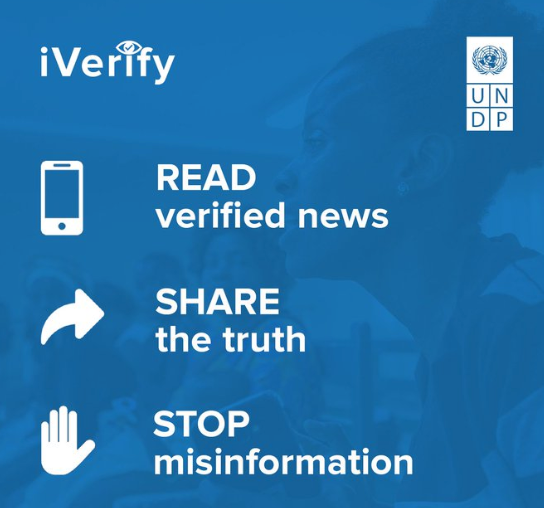Savroula Pabst outlines the United Nations Development Program’s new online anti-disinformation tool, iVerify:
The United Nations Development Programme (UNDP) has quietly announced the rollout of an automated anti-disinformation tool, iVerify, this spring. The instrument, initially created to support election integrity, centers a multi-stakeholder approach spanning the public and private sectors to “provide national actors with a support package to enhance identification, monitoring and response capacity to threats to information integrity”.
The UNDP demonstrates how iVerify works in a short video, where anyone can send articles to iVerify’s team of local “highly-trained” fact-checkers to determine if “an article is true or not”. The tool also uses machine learning to prevent duplicate article checks, and monitors social media for “toxic” content which can then be sent to “verification” teams of fact-checkers to evaluate, making it a tool with both automated- and human-facilitated elements.
On its website, the UNDP makes a blunt case for iVerify as an instrument against “information pollution“, which they describe as an “overabundance” of harmful, useless or otherwise misleading information that blunts “citizens’ capacity to make informed decisions”. Identifying information pollution as an issue of urgency, the UNDP claims that “misinformation, disinformation, and hate speech threaten peace and security, disproportionately affecting those who are already vulnerable”.
But, behind this rhetoric of fact-checking expertise and protecting society’s most marginalized, iVerify, as a tool functionally claiming an ability to separate the true from the false, actually provides governments, adjacent institutions, and the global elite an opportunity for unprecedented dismissal, and perhaps thus subsequent censorship, of dissenting perspectives and inconvenient information and reporting, all behind the pedigree of a UN institution with international reach.




